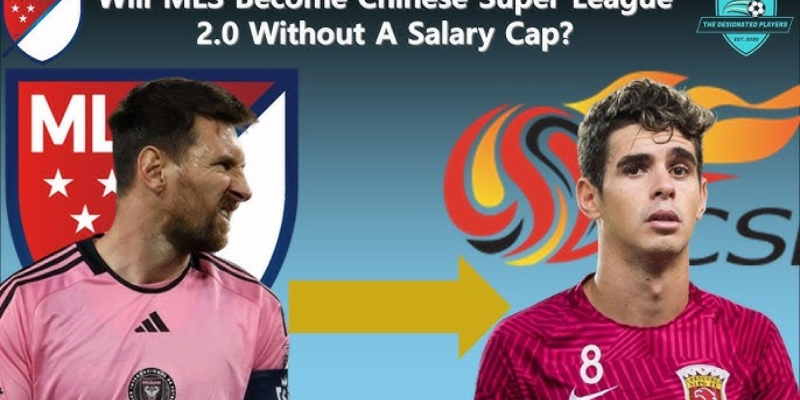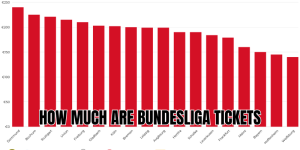In short: no, MLS teams cannot play in the UEFA Champions League. However, they can compete in North America’s top continental club competition — the CONCACAF Champions Cup (formerly the Champions League) — and that still offers prestige, continental glory, and access to the Club World Cup. In this article, KottuGoal will explore why MLS clubs are ineligible for Europe’s competition, what continental tournaments they do play in, and whether anything could change in the future.
What is the UEFA Champions League and eligibility criteria

The UEFA Champions League (UCL) is Europe’s premier club tournament, open only to clubs that are members of European football associations under UEFA. Qualification is based on domestic league or cup results in those European nations. Since MLS clubs are based in the United States (or Canada) and affiliated with U.S. Soccer or the Canadian Soccer Association, they are not part of UEFA, and so cannot qualify.
Key points:
- UEFA competitions are governed by UEFA, which has its own territorial membership. Only clubs in those territories are eligible.
- MLS is under CONCACAF jurisdiction, not UEFA.
- No amount of match success in MLS or CONCACAF qualifies a club for entry into the UEFA Champions League, unless there were a massive structural change in world football governance.
What continental competition do MLS clubs compete in

What MLS can do is compete in CONCACAF’s main club competition. Some historical and current facts:
- The CONCACAF Champions Cup (formerly called the CONCACAF Champions League) is the tournament for top clubs in North America, Central America, and the Caribbean. MLS clubs regularly qualify and participate.
- As of recent years, MLS has multiple direct slots in the Champions Cup, Supporters’ Shield, U.S. Open Cup, and.
- Success has not been rare: Seattle Sounders won the CONCACAF Champions Cup in 2022. Other MLS clubs have made finals. But Liga MX (Mexico) has historically dominated.
So while MLS teams cannot play in the European UCL, they do have an established continental stage in their own football confederation.
Why the confusion arises: Champions League naming & cross-terms

Much of the misunderstanding comes from overlapping names and similar formats:
- CONCACAF’s “Champions League” used to be called exactly that until it was rebranded/reformatted to “Champions Cup.” Many older articles still call it the “Concacaf Champions League.”
- People assume “Champions League” always refers to UEFA’s version (Europe), but in a general sense it could mean any continental champions tournament.
- Because some MLS clubs compete internationally (e.g. in CONCACAF, Leagues Cup, Club World Cup), fans sometimes mix up which competition is which.
Could MLS clubs ever play in the UEFA Champions League?
This is currently speculative, but let’s consider what would need to change, and whether it’s plausible.
What would need to change
- Visa of UEFA membership — An MLS club would need to be under a UEFA member association. That would require geographical, political, or organizational reclassification, which is very unlikely.
- Regulations of FIFA/UEFA — Rules are pretty rigid: clubs must belong to national associations in UEFA territory. MLS teams, being U.S./Canadian, are not.
- League structure shifts — Hypothetically, if boundaries and affiliations were redrawn (e.g. in some radical world football reorganization), MLS clubs could become part of a UEFA system. But that would be hugely controversial and complex.
Practical likelihood
- Very low in foreseeable future. No serious proposal currently has traction to allow North American clubs into UEFA competitions.
- MLS is growing fast, paying stars, increasing competitiveness. But even so, inter-confederation participation is limited to global tournaments like the FIFA Club World Cup.
What benefits do MLS clubs gain, CONCACAF Champions Cup and related tournaments offer significant advantages:
- Continental prestige — Winning CONCACAF gives regional bragging rights, especially defeating Liga MX teams.
- Access to Club World Cup — The winner of Champions Cup qualifies for FIFA’s Club World Cup, allowing matches vs top clubs.
- Revenue, exposure, player development — International matches help with experience, recruiting, fan interest.
- Motivation for fans & growth of the league — Treks in Champions Cup build stories (e.g. Seattle’s win in 2022) that galvanize MLS’s profile.
Current format: How MLS teams qualify for the CONCACAF Champions Cup
Here’s how MLS clubs typically earn their place in the Champions Cup:
- Winning MLS Cup (playoff champion)
- Winning the Supporters’ Shield
- Winning the Leagues Cup or finishing as one of its top teams
- Winning the U.S. Open Cup in U.S.-based clubs (for Canadian clubs in MLS, there is the Canadian Championship)
In recent rules (2024 onward), more slots have opened up, and qualification has become more structured across different competitions.
Key examples: MLS clubs vs Champions Cup & Club World Cup
- Seattle Sounders FC won CONCACAF Champions Cup in 2022, becoming the first MLS club to do so since the long run of Liga MX dominance.
- MLS clubs like Toronto FC, LAFC, CF Montréal have reached finals. Seattle’s performance granted them entry into FIFA Club World Cup, where they faced top clubs.
Summary of distinguishing features: MLS vs UEFA paths
| Feature | UEFA Champions League | CONCACAF Champions Cup (for MLS) |
| Geographic scope | Europe (UEFA member nations) | North, Central America, Caribbean (CONCACAF) |
| Eligibility | Clubs under UEFA associations, domestic qualification | Clubs under CONCACAF,./Canadian/National Cups |
| Prestige beyond region | Highest in Europe, extremely global | Highest in CONCACAF region; global via Club World Cup |
| Pathway for MLS clubs | None at present | Multiple routes via MLS performance & domestic cups |
(Note: This is illustrative, not a table of exact rules, just comparison of how access works.)
Conclusion
In conclusion, can mls play in champions league — if by “Champions League” you mean Europe’s UEFA Champions League — the answer is no. But if you’re thinking about continental competition more generally, MLS teams already compete at high level in CONCACAF’s Champions Cup, fight for club-world invitations, and build rich legacies. For fans, that means exciting matches, regional pride, and occasionally triumphs that ripple beyond North America.
If you want, KottuGoal can also dive into what would need to change in global football governance for MLS to ever join UEFA tournaments, or compare MLS’s performance to Liga MX and South American leagues. Want us to explore that next?






